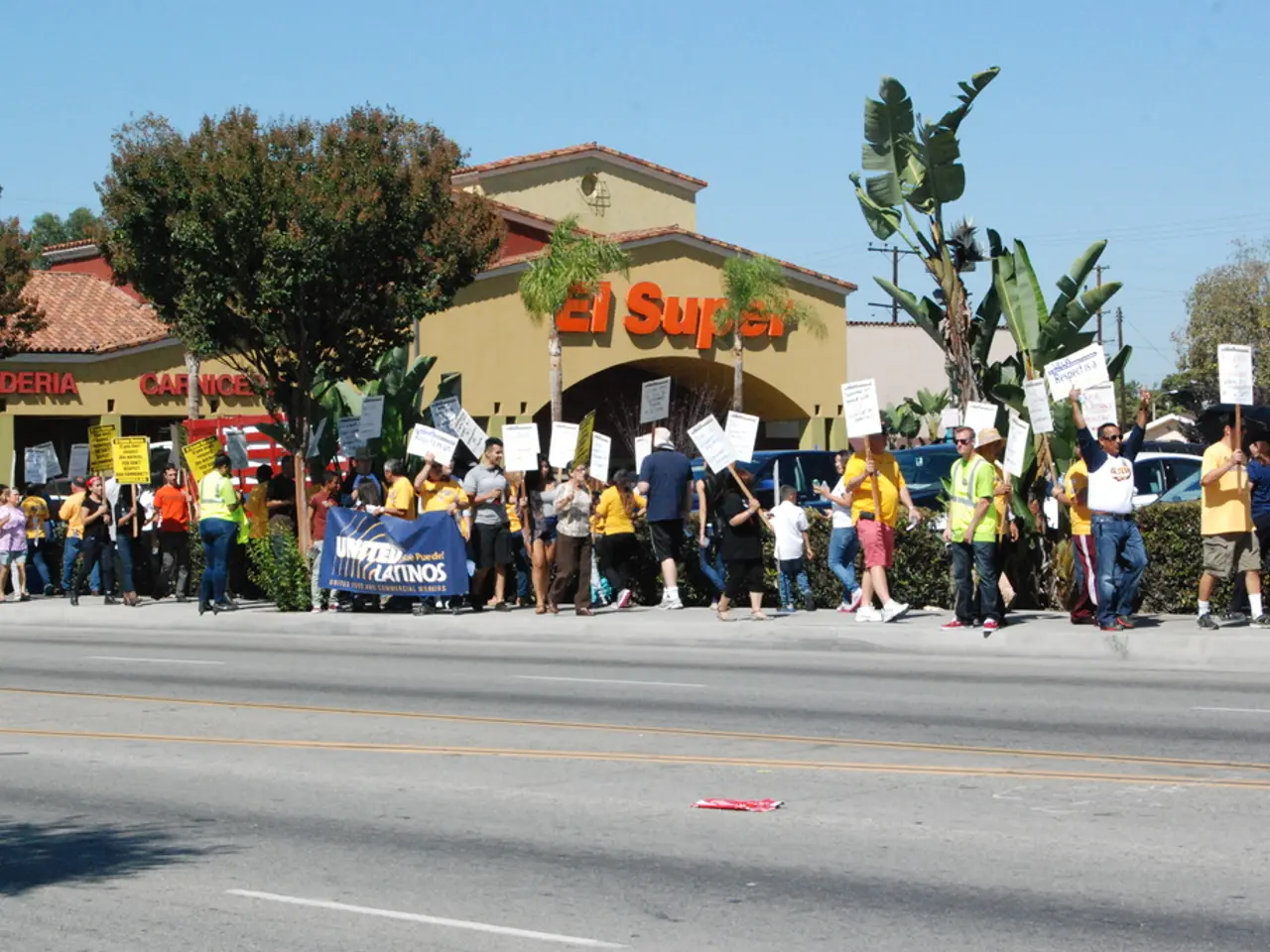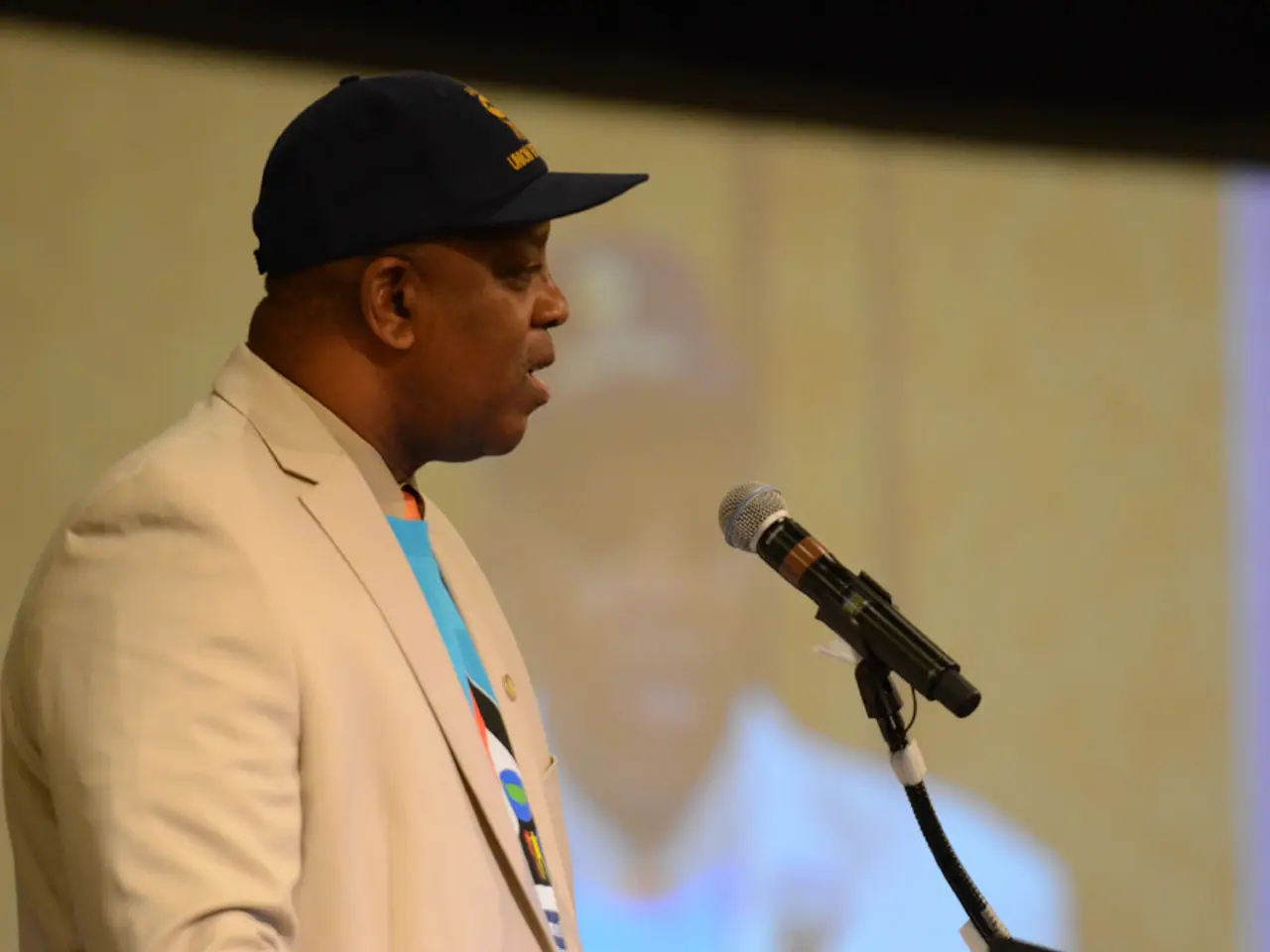NDP Leadership Contest Puts Time Pressure, With Public Growing Impatient
The New Democratic Party (NDP) is currently in a state of transition following the 2025 federal election, a result that saw the party achieve its worst outcome in history and the loss of leader Jagmeet Singh's seat. The timeline for the next leader election has not been explicitly defined, but the process is crucial for several reasons.
Firstly, the NDP needs a new leader who can revitalise the party, attract new supporters, and rebuild its political influence. This is essential for maintaining a strong opposition voice in Canadian politics, ensuring a healthy, diverse political landscape.
The NDP plays a significant role in Canada's multi-party system. A strong NDP can influence policy debates, particularly on issues like healthcare, education, and environmental protection, which are crucial for the country's social and economic development. In a political context where other major parties like the Liberals and Conservatives often dominate, a robust NDP can help prevent any one party from becoming too powerful, ensuring diverse perspectives are represented in Parliament.
The NDP traditionally supports progressive economic and social policies. A new leader could reshape these policies to better align with contemporary issues and challenges facing Canada, such as climate change and social inequality.
The quality of a government is determined by the quality of its opposition, and Canada is currently in desperate need of quality control. The Prime Minister has stated that he will table a budget this fall and another in the spring of 2026, which will likely include deep and painful cuts to health care, education, and other programs. These cuts could widen the economic and social divide, steering the country towards deeper inequality.
The NDP's interim leader, Don Davies, and the caucus have done admirable work keeping the party alive, but this success is temporary. The party needs a leader rooted in care for one another and in practical, hard-won policies forged through grassroots collaboration with working people, Indigenous communities, and local organizers.
The NDP's federal council, the party's highest democratic body between conventions, is meeting this week to decide how and when to select the leader. A leadership race run with urgency can benefit the party by showing Canadians the strength of the team and vision. A tight campaign and decisive vote are necessary to regain the party's energy and focus its message and mission.
Dragging the process beyond 2025 could pull the party out of the public eye, allowing the status quo to continue. New Democrats need to get on with the business of picking their next leader to give greater voice to their cause and achieve their full potential to effect change. The race to elect the next leader of the federal New Democratic Party could determine Canada's direction for years to come.
- To revitalize the New Democratic Party (NDP) and regain political influence, the party needs a new leader who can attract new supporters and maintain a healthy, diverse political landscape in Canada.
- A strong NDP can influence policy debates on crucial issues like healthcare, education, and environmental protection, ensuring a balanced and diverse perspective in Parliament.
- The NDP's new leader could reshape economic and social policies to align with contemporary issues such as climate change and social inequality in Canada.
- With the Prime Minister planning budgets that may include deep cuts to healthcare, education, and other programs, a strong and vocal opposition from the NDP is necessary to prevent deepening economic and social inequality in Canada.
- The media can play a significant role in shaping public opinion about the NDP, either by highlighting the positive impact of a strong opposition or by allowing the status quo to continue.
- The federal council of the NDP is meeting this week to decide on the timeline for the next leader election. A swift and focused leadership race can help the party re-energize and voice their opinions more effectively, potentially shaping the direction of Canadian politics for years to come.








